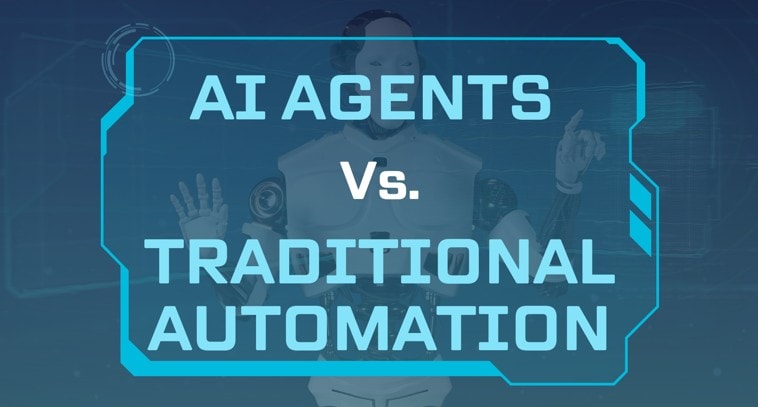In the world of SEO, change stands as the sole constant, mirroring the current state of flux within the economy. Marketers grapple with the impact of SEO changes, diminished paid spending, and the overarching need to achieve more with less.
The quest for cost reduction and enhanced efficiency among C-suite members has propelled SEO to the forefront of boardroom discussions, recognizing its indispensable role.
Across diverse industries, SEO exerts a profound influence on website performance, offering crucial insights into consumer behaviour and intent, and facilitating the discovery and measurement of content.
Looking ahead to 2024, the manner in which SEO professionals communicate with key stakeholders within their organizations takes on paramount significance. In the face of escalating competition for digital marketing budgets, acknowledging and rewarding the success and performance of SEO becomes imperative.
As SEO becomes deeply embedded in various phases of business, spanning insights for sales and product, content optimization, and collaboration with digital media teams, addressing key questions becomes essential:
- Which metrics hold significance for the CEO?
- How can effective communication on budgets be established with the CMO and CFO?
- When and in what manner should SEO performance be communicated across the organization?
- How should multiple requests for insights from various departments be managed?
To assist in these challenges, here are some insights and tips aimed at facilitating effective communication with the C-suite.

Challenges and Opportunities of SEO in the Boardroom
Discussions among C-level executives are changing, influenced by economic shifts, fluctuations in supply and demand, and organizational transformations.
Companies of all sizes and across diverse industries confront ongoing challenges as they strive to innovate for the future and meet the evolving demands of tomorrow’s customers.
The focus for every business is understanding and addressing the needs of customers and improving their experiences.
With this, the organic channel proves invaluable for guiding key C-suite members to:
- Stay abreast of market trends through crucial business insights.
- Identify competitive pressures.
- Uncover new opportunities.
- Attain a comprehensive understanding of the customer throughout the entire business.
While C-suite discussions are highly performance-oriented, the emphasis is not solely on driving performance without regard for costs. Instead, the goal is to optimize performance in the most efficient manner, maximizing gross margins.
In the context of the organic channel and SEO, C-level executives recognize the Return on Investment (ROI) provided by the organic channel, which consistently propels over 51% of website traffic—a percentage that has remained stable for almost eight years. This statistic serves as a strong foundation for engaging in meaningful conversations with C-level executives.
Nevertheless, SEOs encounter some challenges:
- Gaining visibility.
- Securing buy-in through transparent reporting and effective communication.
These challenges are interconnected, with success in one area reliant on achieving progress in the other.
Understanding the C-suite and Significance of Key Business Metrics
The C-suite, responsible for steering the company’s business strategy and overseeing employees, exhibits varying degrees of familiarity with digital marketing techniques among its members.
While some individuals may possess advanced technical skills such as coding or web design, others may specialize in product strategies. Regardless of their proficiency in SEO, all C-suite members collectively strive toward common objectives:
- Achieving results (revenue).
- Monitoring performance metrics to measure competitiveness.
- Assessing organizational impact.
In the world of organic search, measuring the success of a campaign doesn’t always align with what individuals in the organization perceive as a triumph. To foster better communication and understanding, it is important to establish the significance of SEO at an individual level, particularly with decision-makers who rely on these metrics.
Demonstrating how SEO efforts not only improve other digital marketing channels but also contribute to improved customer retention through personalized offerings based on an understanding of the customer experience can bridge this communication gap.
In an era of reduced media budgets and increased expectations for efficiency, communicating the importance and value of SEO is more critical than ever. The goal is to convey that:
- Search plays a consistent role in our lives, regardless of economic conditions.
- Good SEO drives the most cost-effective form of revenue.
- SEO offers essential business intelligence on both macro (market) and micro (intent) levels.
- SEO fuels content for other marketing channels more efficiently.
- Unlike other channels, search remains stable and doesn’t fluctuate with consumer behaviour.
- SEO positively impacts brand awareness, equity, and visibility.
- SEO insights benefit broader business functions, including product development and sales.
- SEO is an investment that yields compounded interest, delivering both short-term wins and long-term incremental gains.
Emphasizing that the time and effort invested in SEO are enduring, building over time to provide durable and exponential growth, aligns with the interests of C-suite members. While organizational structures may vary, the following examples, based on a generic enterprise C-level structure, illustrate these points for clarity.
CEO
The CEO, being deeply concerned with overall performance, seeks to comprehend the impact of SEO on the business’s top line and assess the efficiency of these contributions. Limited investments for company growth need assurance that SEO investments will yield returns. Sales numbers and competitive positioning are key focal points.
Key metrics for the CEO include:
- ROI
- Sales
- Market share
- Share of voice
CMO
The Chief Marketing Officer (CMO) directs attention to the comprehensive demand generation portfolio, finding organic search particularly compelling due to its substantial reach. The CMO’s objectives include growing traffic and revenue from organic search, understanding its conversion efficacy, and discerning its role alongside other marketing channels.
Key metrics for the CMO include:
- Conversion rates
- Acquisition costs
- ROI compared to other channels
CFO
The Chief Financial Officer (CFO), sharing the CEO’s interest in overall performance, also focuses on budgeting and forecasting. Amid economic fluctuations and budget constraints, it’s important for the CFO to grasp the rationale behind SEO initiatives and their anticipated outcomes. Strategic decisions about new investments and optimal allocation of SEO budgets and technology spending are of paramount importance.
Key metrics for the CFO include:
- Operational costs
- Budget efficiency
- Forecasts and ROI compared to other channels
CTO
In the world of modern SEO, the Chief Technology Officer (CTO) plays an important role. CTOs:
Engage actively in data, insights, integration, and product development. Must stay abreast of all technical advancements to make informed decisions regarding future products or services for their company’s roadmap.
Key metrics for the CTO include:
- Site performance.
Product development.
Adoption.
COO
The Chief Operating Officer (COO) expresses interest in how SEO contributes to various phases of the business, consisting of recruitment, branding, sales, retention, and upsells. Additionally, the COO examines associated costs, such as design, and evaluates the integration of SEO structures, people, and processes across the organization.
Key metrics for the COO include:
- Operational costs.
- Compliance.
- Business intelligence.
- Contribution to cross-functional goals and objectives.
- Cost savings achieved through automation.
Collectively, the C-suite seeks answers to the following:
- The size of the competition.
- The value of the market.
- Their share of voice in the market.
- The maximum possible return vs. the actual return.
Achieving Proficiency in Communication
Keep in mind that your time with the C-suite is limited, so choose your words wisely and ensure they carry weight.
To champion and improve your SEO efforts, tailor your communication to your audience, speaking in a language that resonates with them. Consider that a CMO is likely more interested in revenue than rank, as they focus on how an SEO campaign directly impacts tangible results for the company’s financial performance.
Effective communication involves speaking “their language,” requiring a translation of your insights. For CEOs, highlighting keyword ranking changes (beyond essential core terms) may be less compelling compared to emphasizing your share of voice, revenue generated from organic campaigns, and success within the competitive landscape. This approach provides an opportunity to elevate the perceived importance of SEO and your role within the organization. Once again, the choice of language plays a pivotal role in effective communication.
Improve SEO through Transparency
SEOs have a track record of presenting SEO as esoteric and exotic, often implying an element of mysterious dark magic. Unfortunately, this approach doesn’t benefit either the SEO professionals or the executive audience.
A more effective strategy involves:
- Increasing transparency on progress: Unlike paid channels or sales, SEO typically requires more time to yield results. However, integrating monthly SEO progress reporting into standard management reports fosters transparency. Additionally, it’s essential to emphasize that SEO investments offer compound, interest-like returns unmatched by other channels.
- Being curious yet focused on critical wins: Similar to how sales wouldn’t delve into the tactical minutiae of every deal with management, SEOs should adopt a strategic approach. Instead of overwhelming executives with details, SEO professionals can identify repeatable patterns and convey how these successes can be scaled across other representatives and deals. This change allows for a more focused and impactful communication strategy.
Convey the Value of SEO to the C-suite
The significance of SEO continues to grow, with its active involvement in business planning and integration into many companies’ business intelligence. Consequently, achieving alignment with multiple stakeholders, particularly across the C-suite, becomes crucial as organizations progress.
In navigating these advancements, ensure the solidity of your strategies and foster alignment among various stakeholders. SEO teams often face the expectation of delivering more value with fewer resources than other business areas, underscoring the importance of a methodical approach in this scenario.
To integrate these challenges effectively:
Showcase Success and Manage Expectations: Given the demanding nature of SEO work, use your time strategically to highlight successes and carefully manage expectations. Recognize that building traction takes time, requiring a balance between strategies for incremental gains and a focus on long-term success.
Create Impactful Dashboards and Presentations: Elevate your success by developing dashboards and presentations that directly link SEO strategy and tactics to business objectives. This proactive approach aids in positioning and promoting the success of SEO within the organization.
Improve Communication Skills: Effective communication in meetings is a vital component of SEO success. Invest time in developing traits such as confident speaking abilities and compelling storytelling to engage with organizational leaders. This capability allows you to effectively communicate the value offered by the organic search channel and your contributions.
Engage with C-level Executives: Continuously interact with C-level executives, helping them comprehend the value of SEO and its important role in the business. Use data, AI, and deep learning to share powerful insights, create content-rich narratives, and acquire new skill sets that enable adaptability in the broader digital and marketing technology landscape.
Would you like to read more about “How To Engage Corporate Stakeholders With SEO” related articles? If so, we invite you to take a look at our other tech topics before you leave!
Use our Internet marketing service to help you rank on the first page of SERP.










